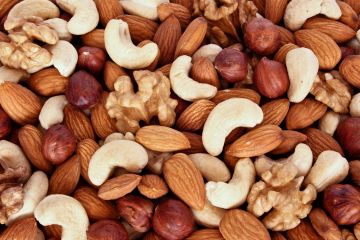Quenching your thirst with your favourite soft drink or some other sweet and refreshing drink can be so tempting. When jump-starting your day, you also probably prefer to make a cup of coffee, and, for your mid-afternoon boost of energy, you might reach for an energy drink or a cup of tea. There’s one drink that can see to all your thirst-quenching and energy-boosting needs and it’s simply lemon-infused water.
What’s so great about lemon water? How could it possibly beat out your favourite drinks? For one, it has zero calories. We’re always encouraged to drink more water and infusing it with lemon can make it more flavoursome. Not to mention, lemon has a multitude of health benefits. Soon, you’ll be stocking up your fridge with bottles of lemon water when you learn just how invigorating, healing and therapeutic it can be.
Consuming water alone is one of the simplest and most helpful things we can do to maintain our health. Water is a key component in every system of the body and a requirement in all bodily functions. Water flushes out toxins, delivers nutrients and supports a healthy environment for the tissues in the ear, throat and nose. If you’ve ever experienced dehydration you know how harmful it can be and this is because the systems of the body are struggling to function properly without water. The ideal amount of water to drink is based on your body weight and be calculated as 0.03 litres of water per kilogram of body weight.
Meanwhile, lemon is one of the most nutritional fruits available, being low in fat and sodium while high in folate, potassium and vitamin C. Folate is especially beneficial to women and can prevent cognitive problems, cancer, some psychiatric illnesses and cardiovascular issues. Potassium is great for building protein and muscle, while vitamin C repairs parts of the body. Lemon also has antioxidant properties, which means it can block the negative effects of cancer-causing free radicals.
 When combined together, lemon and water can pack some pretty powerful benefits including aiding digestion. Lemon water has also been found to prevent constipation and is considered a gentle early morning laxative. Lemon water can also keep your breath fresh and can help neutralise the odour after eating some particularly strong-smelling foods, like garlic, onions or fish. The citric acid in lemon also decreases the risk of calcium stones. Even your skin can gain positive effects from drinking lemon water since vitamin C has been found to reduce the risk of wrinkles and dry skin.
When combined together, lemon and water can pack some pretty powerful benefits including aiding digestion. Lemon water has also been found to prevent constipation and is considered a gentle early morning laxative. Lemon water can also keep your breath fresh and can help neutralise the odour after eating some particularly strong-smelling foods, like garlic, onions or fish. The citric acid in lemon also decreases the risk of calcium stones. Even your skin can gain positive effects from drinking lemon water since vitamin C has been found to reduce the risk of wrinkles and dry skin.
Lemon water does come with some adverse effects, though. The citric acid in lemon can erode tooth enamel. You can protect your teeth by drinking through a straw and rinsing your mouth afterwards. Citric acid can also cause heartburn. Furthermore, lemon juice can increase urine production.
If you want to make the perfect lemon water, use filtered water and fresh and organic lemons. You can drink it either hot or cold and you can also add mint, honey and ginger for even more flavour and health benefits.



 Weight gain is one adverse effect. You’ve probably heard of the term “beer belly,” which is, to an extent, true. Any alcoholic beverage can cause weight gain if consumed in excess. Alcohol in relation to heart health is also vital. Moderate drinking can have great benefits, like lowering cholesterol–but only if paired with a healthy lifestyle.
Weight gain is one adverse effect. You’ve probably heard of the term “beer belly,” which is, to an extent, true. Any alcoholic beverage can cause weight gain if consumed in excess. Alcohol in relation to heart health is also vital. Moderate drinking can have great benefits, like lowering cholesterol–but only if paired with a healthy lifestyle.





